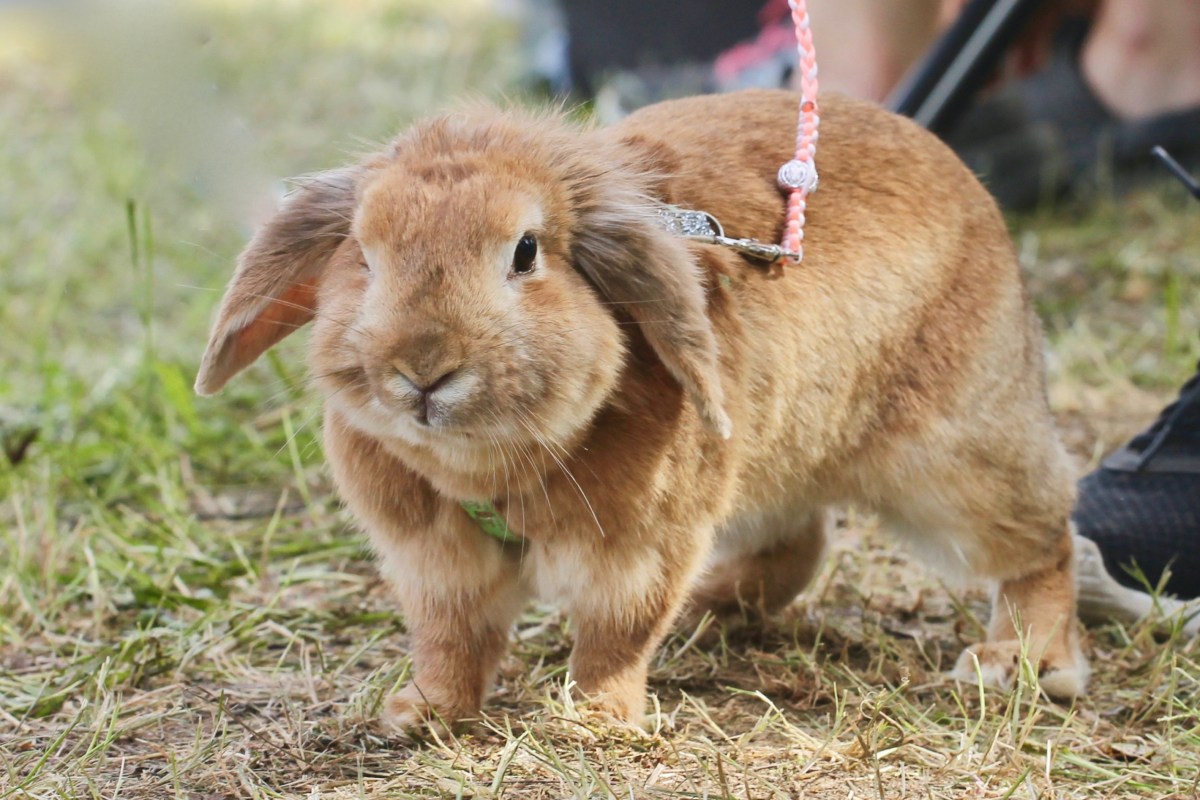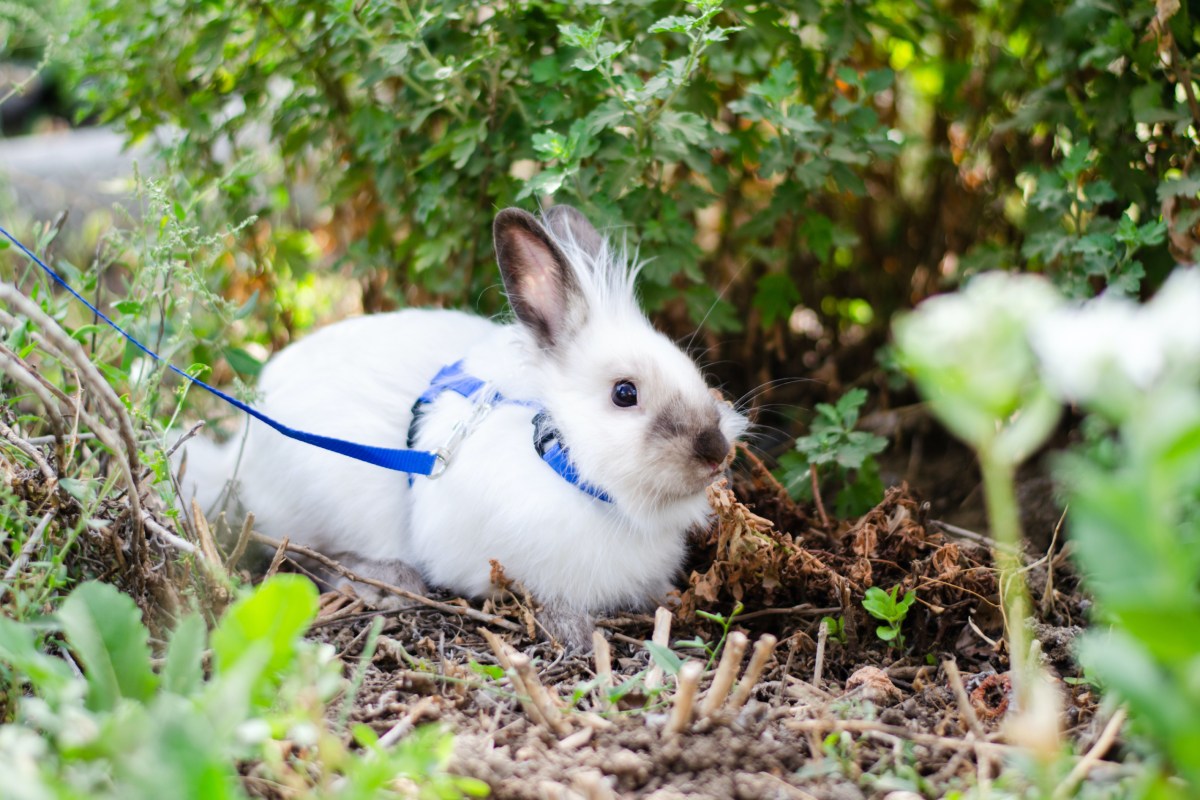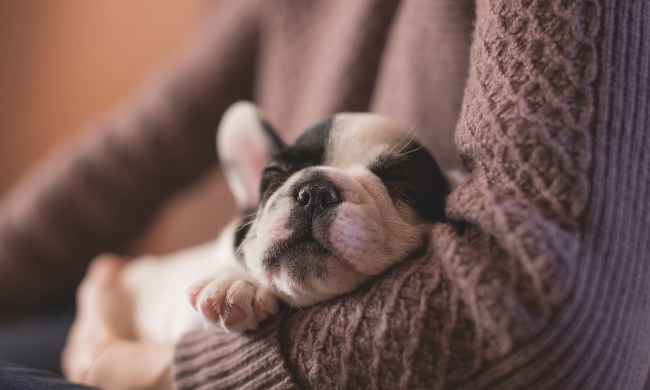If you’re looking to leash-train your rabbit, you have a few options to weigh. None of those options, however, includes letting your bunny borrow your dog’s collar and leash — please don’t use anything that’s not rabbit specific! It’s oh-so-important to consider the comfort and safety of your pet when buying harnesses and leashes, but what safety details are the most important to look at?
From size to fit to feel, there’s a lot to consider. It might help to measure your rabbit both lengthwise and around her middle, though many harnesses are sized by a pet’s weight as well. If you can find a product you and your bunny can test out, that’s even better; there’s no surer way to know whether a harness works than to try it on for size. Here are a few things to remember while you’re shopping for a bunny harness.
Look for a rabbit harness and leash that connect in the back
Just like an excitable dog who coughs and even chokes while pulling on the leash, a rabbit may also inadvertently hurt herself with a traditional leash-and-collar combo. A harness, alternatively, lets the leash support her whole body instead of just her neck. Colorado House Rabbit Society’s chapter manager Nancy LaRoche told PetMD, “I prefer the type of leash connected to the back of a ‘harness’ that wraps around the rabbit’s body, held snug by both Velcro and buckles. That way, if the rabbit is startled and suddenly dashes away, there is no danger of the rabbit’s neck being jerked and possibly broken. The pressure is against a large portion of the body, which makes stopping the rabbit safe.”

The more ways it fastens, the better
Just like LaRoche said, the safest harnesses will have more than one way to secure your pet. Buckles, Velcro, and even zippers are common fasteners in harnesses, and many take advantage of more than one of these closures. One great example is Kaytee’s Comfort Harness Stretchy Leash, designed for rabbits and other small mammals. It features both a snap buckle and hook-and-loop fastener straps for an extra layer of protection. This way, you’ll feel that much safer taking your furry friend out into the world!
Look for a soft, comfy material
Harnesses such as Niteangel’s Adjustable Soft Harness with Elastic Leash for Rabbits use an ultrasoft material to be fit for all-day wear. This particular polyester harness is breathable yet durable, so you don’t have to worry about wear and tear if you have an adventurous bunny. It’s important for your fuzzy friend to be comfortable in her harness, especially if she’ll be wearing it for extended periods, so she doesn’t freak out or try to escape (which can hurt her). Besides, your bunny will need plenty of flexibility in her harness to binky to her heart’s content!

Consider a bell for free-roaming pets
If your rabbit likes to wander, you might want to purchase a harness that includes a bell or other noisemaker. With this, you won’t have to keep quite as close an eye on your pet, though you should always supervise any outdoor playtime. The Small Animal Harness & Lead by Living World is the same harness you know and love, with a tiny bell attached to the leash clip. This can be a super-helpful tool for pet parents whose sight may not be the best — or for bunnies who are master escape artists!
Whether your rabbit has spent time on a leash before or she’s trying it for the first time, a harness will make the process both easier and safer. She’ll love the full-body support and comfort, while you’ll have peace of mind knowing your furry friend is safe and snug. For a pet parent, nothing is more important.
These harnesses also come in a bunch of cute colors, so your rabbit can look cool, stylish, or however you like! You can also look for different types of fastenings, depending on what’s easiest for you to maneuver (and hardest for your rabbit to escape). Since most harnesses sold are adjustable, you’ll be able to fit your rabbit for any one, whether it goes over her head or around her paws. Whichever style and features you and your pet prefer, there’s something out there for you.



